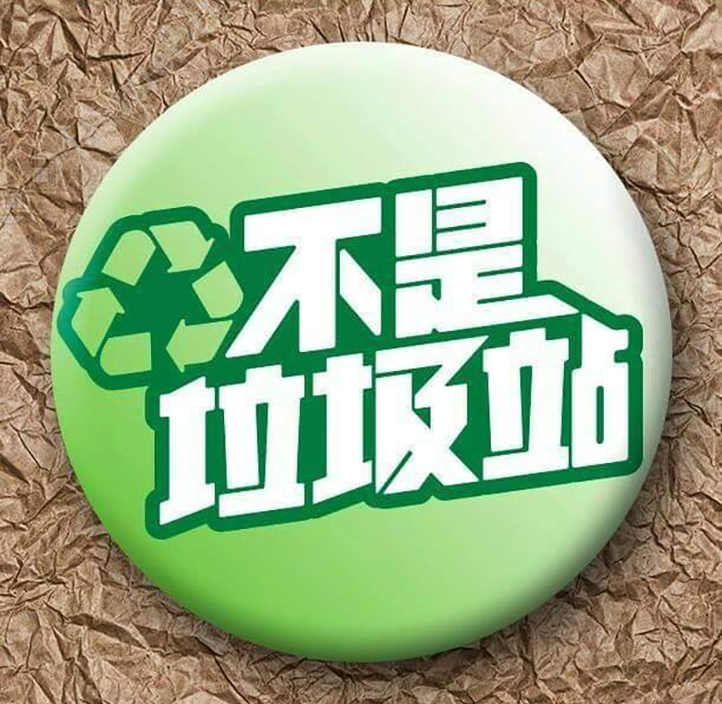


Waste-No-Mall is a Hong Kong-wide initiative, in which residents set up a weekly recycling centre and freecycle market for their local community. The first market was set up in Yuen Long in 2016. Through weekly markets, Waste-No-Malls assist local residents in recycling plastics, glass and paper, and also collect and give away second-hand goods for free.
The Challenges
Hong Kong is one of the most wasteful cities worldwide. In 2019, over 5.7 million tonnes of municipal solid waste were generated across the domestic, commercial and industrial sectors. Over 15,600 tonnes are sent to the landfill on a daily basis. Despite this, the proportion of recycled waste was only at 29% in 2019, reaching a ten-year low (EPD 2020). Though the recycling bins around the city are supposed to cover over 80% of the population, it is common to see bins overflowing with inaccurately sorted litter. There were also reports of bottles intended for recycling being sent to landfills instead. Such reports undermine the public’s confidence in the recycling system and thus deter them from recycling. (Office of The Ombudsman 2020).
The Solution
Frustrated by the perceived ineffectiveness of the government’s recycling services, the main aims of the initiative are to achieve community waste reduction by local waste collection and environmental education. Waste-No-Mall was first established by local volunteers in Yuen Long. The initiative holds weekend market events, acting as a collection point for local people to donate unwanted resources and recycle a range of plastics, glass and paper. The weekend market also serves as a new, innovative platform to promote community cohesion through a free-cycle element, where people follow a give-and-take model for second-hand items. Local volunteers also run eco-education workshops to introduce concepts of upcycling and free-cycling The workshops strengthen residents’ awareness on a range of environmental issues and make mainstream the culture of recycling and using second-hand goods. Unlike traditional recycling bins and government collection points, Waste-No-Mall provides a credible alternative where people can see where their rubbish goes and showcases the potential for innovation in waste collection that is organised and managed by local communities.
The Impact
Inspired by the initial Yuen Long Waste-No-Mall, individuals and community groups across Hong Kong have launched similar initiatives in other districts. There are now over 20 Waste-No-Mall weekend markets in all 18 districts of Hong Kong, all of which are organised and managed by volunteers from nearby communities. Most supporters of Waste-No-Malls are local residents who recognise the impacts of locally relevant initiatives that benefit both themselves and those in the neighbourhood, as a more inclusive and community-based alternative to the government recycling stations. Since August 2017, the Yuen Long Waste-No-Mall regularly collects over one tonne of recycled and second-hand material a week; over 4,000 kilograms of recycled material (plastics, paper, packaging glass etc.) and over 5,000 kilograms of second-hand material.
Reference
"Monitoring of Solid Waste in Hong Kong: Waste Statistics for 2019." Waste Data & Statistics, Waste Reduction Website, Environmental Protection Department, Hong Kong, December 2020. https://www.wastereduction.gov.hk/sites/default/files/msw2019.pdf. Accessed 28 December 2020.
"Ombudsman probes into management and effectiveness of waste separation bins.” Cases under Investigation, Office of The Ombudsman, Hong Kong, 30 Nov 2020. https://www.info.gov.hk/gia/general/202011/30/P2020113000321.htm. Accessed 28 December 2020.